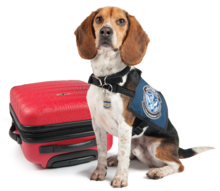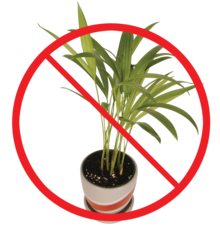Responsible international travel includes being aware of risks and declaring agricultural items.
In February 2022, Customs and Border Protection documented 65,350 passenger inspections of undeclared agriculture items. The financial risk from pests brought into the country is estimated at $26 billion from invasive pests harming agricultural and natural resources.
Minnesota’s colleges and universities hosted nearly 16,000 international students and scholars in 2018, while more than 8,000 students participated in a study abroad experience. That’s why University of Minnesota Extension and Sea Grant joined a national team working to increase awareness of carrying potential pests into the country.
The program, called Don’t Pack a Pest, is managed by the U.S. Department of Agriculture’s Animal and Plant Health Inspection Service and Customs and Border Protection. Universities join this initiative to bring awareness to international academic travelers about the risk of carrying unwanted pests into the country because academic travelers are a growing segment of all international travelers.
Be aware, avoid problems
International travelers can check Dontpackapest.com in advance to find out if an agricultural item can be brought into the United States. Travelers must always declare these items to the Customs Officer to avoid receiving a fine. The Customs Officer will make the final decision about the risk of any item carried (or worn) by travelers.
Even clothing or shoes can carry microscopic pests. A visit to a farm or rural area should also be reported because how long some of the pests survive may be unknown. Of particular concern this year is African Swine Fever or Highly Pathogenic Avian Influenza.
“The decision of what is allowed to enter the country will depend on the product, the country of origin, and any disease outbreaks of concern documented by the U.S. Department of Agriculture and Customs and Border Protection,” says John Vreyens, director of Extension Global Initiatives. “Travelers should also not carry food off the airplane, since that originated from outside the U.S.A.”
“Public awareness and action are the keys to preventing the spread of invasive species,” says Doug Jensen, aquatic invasive species Extension educator with University of Minnesota Sea Grant. “Knowing that invasive species are a problem and knowing what people can do are critical to preventing impacts on the environment, recreation and economy.”
Travelers often wonder what is an agricultural good. In general, these are items to declare:
- Food products including meats, poultry, seafood, dairy products and cheese.
- Fruits, nuts and vegetables.
- Soil, seeds, fresh plants and flowers, and flower bulbs.
- Teas, spices and honey.
- Wooden souvenirs, seashells or plant materials like palm fronds.



